Hey guys, how are you doing?
It's Scott. It is Friday, February 16th. I'm sorry I missed Tuesday. It's been a week of family chaos here. Our babysitter has the flu, so there's a lot of kids schedule juggling. And then on top of it, my sister is actually delivering her second child as we speak! So I'm going to be an uncle again to another beautiful niece. I am very excited, but it's been a lot of family energy this week. Also, it was a very exciting week to take a full look back at the entire season that we've created of Wytches for you guys. Again, it's going to be full on, mature, R-rated horror for Amazon Animation Studios that does Invincible. Can't wait for you guys to see. But we just wrapped the first draft outlines, essentially, of our very first season. We have a few months off and then we're going to go back to the second season. We're still working on the scripts. We're still polishing for the rest of this month into the beginning of March. But a lot of the heavy lifting is done and we're in visual development. Like I mentioned, I can't wait for you guys to start to see some of the designs and the test animation.
But I had a chance to look over everything and I want to talk a little bit today about editing. It's a topic that I really feel gets a bad rap. I think it was Truman Capote who had a quote that said, “people think that editing is cleaning up after the party when it actually is the party.” And for me, I get the anxiety about editing. I feel like going back and looking over everything that you've done, diving back in. It's intimidating, right? I actually think that in a lot of ways, the fear of editing is greater than the fear of writing. I think more than writer's block, editing block is what keeps most projects from getting off the ground because it's that second pass, it’s that third pass. It's showing it to somebody and getting feedback. It's that revision phase that's really uncomfortable because you've got to reckon with what you made. And so there's two things to it. I think there's two elements to it that are important.
I think the first one is the one that gets the bad rap and is kind of the big scary monster in the room and all of that. Editing is going back and fixing what's wrong. or what you think could be stronger. So in a lot of ways, editing is facing your mistakes. It's taking a look at this work that you've put your heart into and that you've spent time creating and being vulnerable to that contains all of your hopes for both the characters in the story and for its own birth into the world. It's a hope for connection with other people. It's all of those wonderful and magical things that writing is. And now you have to go with a scalpel under kind of a clinical light and look at it and say, “what is wrong with this? What do I need to excise? What diagnosis can I make that will help me make this thing even healthier and stronger?” And that sucks a lot of the time because you know you're looking for the things that aren't working and you're going to find them.
And so going back and looking at the whole season of Wytches I knew I really liked it but I was afraid honestly it took me a couple days to be like “I'm gonna sit down and read one through eight.” Essentially we have six to seven scripts done, I'm writing eight now but I have the outline done, so looking at everything together. And it was scary and and there are things that I saw that I think could be better, but luckily it was a great experience and I wound up walking away so inspired and proud of what we've made honestly. But I've had the other experience too. I've definitely sat down with projects in the past and went to edit them and realized, “you know what, this part doesn't work.” I remember really vividly on Court of Owls realizing that about four issues in, I had the labyrinth pushed way out from where it wound up being in issue five. And it just felt like it's too far out and realizing at the last minute, “you know what, this has to be closer up.”
So my deep belief is that there aren't thousands of great books and comics and things under beds out there, I've said this before, that don't get published because of mean gatekeepers. Gatekeeping is real. I mean, it is hard to break in. And I don't mean gatekeeping in a toxic sense. I mean, gatekeeping like, there are hurdles to jump through, you have to impress publishers and editors, and it is hard to get your project up and running. But I don't think that there are a million projects that are in shape to the degree that they would be published should they reach publishers in their current form. It's just that 90+% of editors aren't willing to publish them. I genuinely believe a lot of the time 90% of projects, including my own when I was starting, at least, reached publishers in a state that was almost there or not there and needed more revisions. And sometimes the publisher/editor is kind enough to tell you how to do that, sometimes they're not and you have to kind of figure it out. But ultimately it's that process of revising and revising and revising that is actually not like the afterthought or the bolt-on, modular aspect of the writing process, it is core to the writing process. Nothing gets written extremely well on a first draft. Maybe you can do it. Maybe you'll be the exception to the rule. But I'm just saying generally almost nothing does.
But there's a second part of editing that doesn't get talked about enough. And that's when you read and you identify the strength. For me, one of my favorite moments is when I'm doing a comic and the art comes back in and I look back over my script and I adjust the dialogue to fit this incredible art better. and sometimes there'll be things in the artistic storytelling and the visual storytelling that make my words redundant and so I take them out and then it gives me a thought for something else and I'll be like “you know, I don't have to say this here, maybe I can say something else” and then be like “actually, you know what theme I want to bring up? This.” And so writing, even if you don't have the art in front of you and you're just looking back at your scripts, can be really that revelatory, honestly, where you look at a project and you think to yourself “You know what? I've just figured out what I'm trying to say, this in this episode or this issue, and I'm going to strengthen that theme. I'm going to make that more pronounced. I'm going to add to it with this little thing here.”
And so it's a chance not just to recognize your mistakes or the things that you think could improve because they're not working, But it's a chance to look at the things that are working and say, “how do I enhance those? How do I elevate those? How do I use those as a compass to make this even better?” So there's a positive side to editing, not that the critical side isn't positive, but there's just a wholly holistically positive side, which is looking for the things that make you happiest and most proud of the work when you go back through it and teasing those up, using those as guiding principles, using those as lenses to go back over the entire project and look through to really put it into focus and say, “these are the things that I want to make sure it's expressing.” So editing is core for all of those reasons. It's been a week of editing for me.
A couple bit of housekeeping. Right now, I hope you'll order from the amazing publisher DSTLRY White Boat #1, it's a debut issue by me and co-creator Francesco Francavilla. We did Night of the Ghoul and Black Mirror together, he's awesome, and we're doing a big, dark, grotesque, and heartfelt take on seafaring mythology and the Island of Dr. Moreau and all kinds of classic horror done in a modern way the way we did with Night of the Ghoul. He's a great partner going all the way back to Black Mirror. I really hope you'll pre-order it now. The FOC is coming up in like, a week, so please, please order it. There's a million great covers. I'm really proud of them.

And also we have Dungeon out—Dark Spaces: Dungeon #3 with co-creator Hayden Sherman from IDW. It is another super, super, super pitch black series. It's probably the darkest one I've done in a while, honestly. It keeps you disturbed, I would say, all the way to the end. Issue #3 (of 5) is out right now. I hope you'll go pick it up!
Also go celebrate the incredible James Tynion and Tiny Onion. They have an amazing announcement today out in Forbes about the expansion of their company and all the amazing things that James is going to do with his incredible partners there.
I can't tell you how excited I am about the plans that he's told me and ones I know he's still cooking up. So please, please go check it out!
S




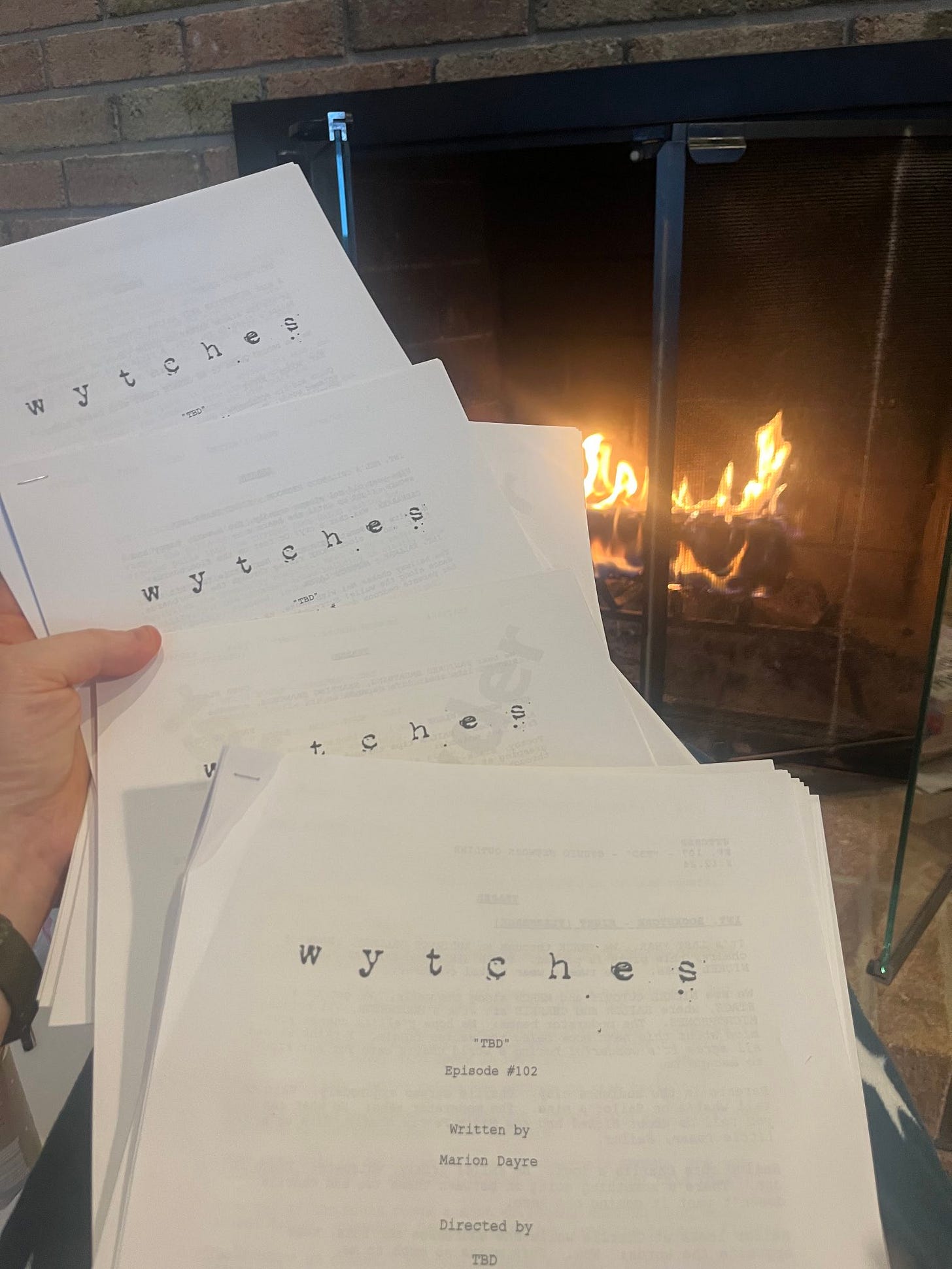




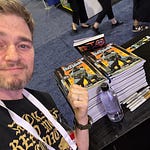
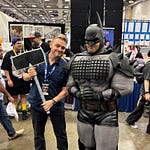


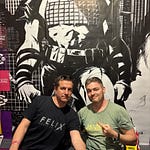
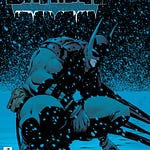
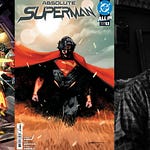
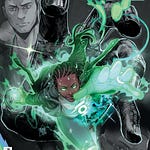
Share this post